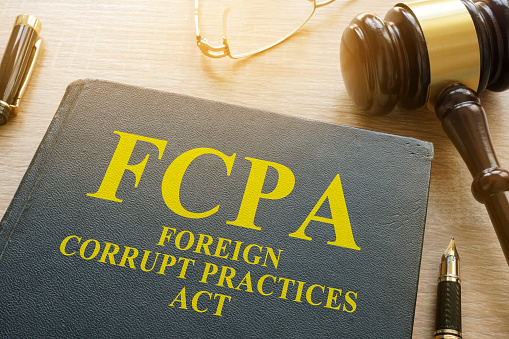The standardization of due diligence processes has done much to advance compliance, but at this point it is also increasing risks, argues in a new article for FCPA Blog.
It suggests that advancing FCPA anti-corruption compliance among multinational corporations (MNCs) has a “trickle down” compliance effect on their smaller suppliers in emerging markets. In other words, MNC due diligence efforts, such as requests for local supply chain partners to fill out standardized due diligence questionnaires or requiring suppliers to adopt an MNC’s code of ethics and conduct, are expected to mitigate local corruption risks.
Yet the experience of the Center for International Private Enterprise (CIPE), which works to encourage ethical business practices among small- and medium-sized businesses (SMEs) in emerging markets, is that imposing MNC-style FCPA compliance procedures has little impact on the corruption risks that local suppliers face daily. Instead, the myth of “trickle down” compliance hurts suppliers in emerging markets by encouraging a “fabrication culture” —in the words of a former Department of Justice official—that ignores local and often systemic corruption realities. Meanwhile, MNCs on the receiving end of questionable data are hardly better protected from bribery and other corruption risks in their supply chains.
In a recent CIPE podcast, Hui Chen, Ethics and Compliance Expert at HC Ethics LLC and a former Compliance Counsel Expert at the U.S. Department of Justice, articulated the cruel irony of pushing FCPA-inspired compliance practices on emerging market SMEs. “The people who are coming to tell you to do the ethical and value-driven things are the very people who tell you to pretend to do something that you are not able to do or makes no sense for you to do,” Chen told CIPE. The key point here is that MNCs’ compliance criteria are not designed to solve practical, everyday bribery and corruption issues that regularly afflict local SMEs. As Chen put it, “How do we help small businesses in dealing with the reality of where they operate? …What do you tell the small business owner…[to] do when the inspector says, ‘Pay me a bribe, or I’ll shut down your kitchen’?”
Unlike MNCs and other large corporations, local SMEs lack leverage to resist corrupt demands. And even though the “checklist” compliance can sometimes encourage local suppliers to go beyond required due diligence and undertake genuine risk assessment and mitigation measures, such examples are rare and usually a result of exceptionally strong ethical leadership and courage.
A more effective way to strengthen leverage is by supporting collective action efforts by local SMEs. These alliances bring together groups of like-minded, ethical companies to advocate for more transparent and fair market rules and can act as a vocal and coordinated front against corruption attempts. These coalitions become even more powerful when MNCs, especially those committed to ESG and other sustainability-oriented goals, are willing to mentor and support their suppliers to withstand extortion attempts and other forms of corruption.
This is occurring now in the Maritime Anti-Corruption Network (MACN), a global business network of over 165 companies in the maritime shipping industry that are committed to combating corruption. When local port agents communicate with local government authorities via email, they copy emails of their partner-MNCs to signal their international partners’ support and oversight. This approach provides transparency to MNC partners who generally require suppliers to report potential or actual corruption incidents to their compliance officers for investigation and resolution.
To advance its goal to fight corruption in emerging markets, CIPE is exploring a new set of questions to help replace faulty assumptions of trickle-down compliance. These include:
- How can MNCs be encouraged to shift from “checklist compliance” to helping their supply chain partners resist everyday corruption in their countries, such as by supporting anti-corruption coalitions of emerging market companies?
- What approaches can encourage government reformers to work together with the local private sector on anti-corruption issues?
- How can international and civil society organizations, such as CIPE, support local SMEs in their everyday challenge to make ethical choices?
Superficial or “fabricated” local anti-corruption compliance hurts both MNCs and local markets. In their place, context-specific and SME-focused approaches are needed to solve corruption challenges and help MNC partners fulfill their anti-bribery commitments. Anti-corruption coalitions and better SME-based anti-corruption advocacy are two promising strategies that have the potential to transform local market conditions, strengthen rule of law, and encourage more transparent and accountable rules and institutions. And the addressable market is huge: close to 70 percent of the world’s jobs and 40 percent of gross world income are generated by emerging market SMEs. These start-small ideas could change the world.


